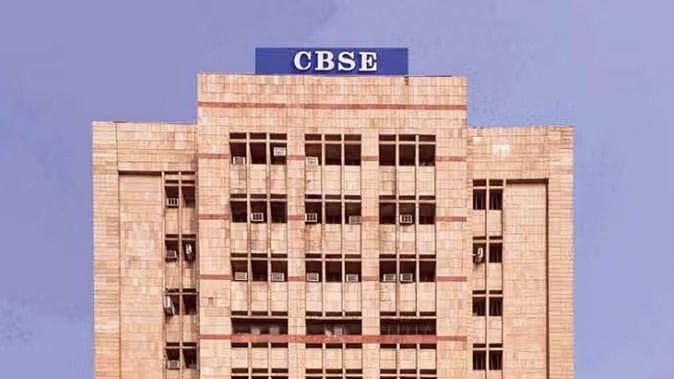CBSE Announces Biannual Class 10 Board Exams Starting 2026
In a major move aimed at reducing academic pressure and giving students a second shot at improvement, the Central Board of Secondary Education (CBSE) will conduct Class 10 board exams twice a year, beginning in the academic cycle of 2026. This decision was officially announced by CBSE in a press release dated June 25, 2025, aligning with the broader goals of the National Education Policy (NEP) 2020.
The first phase of the exam will be mandatory for all students, while the second will offer an optional opportunity to improve scores. “This decision is in line with NEP-2020’s recommendation to reduce the ‘high-stakes’ nature of board examinations and to introduce greater flexibility and student choice,” said Dr. Sanyam Bhardwaj, Controller of Examinations, CBSE.
What Will Change from 2026
CBSE’s new two-exam system means that students appearing for Class 10 will face a modified calendar and rules:
- Mandatory Attempt: All students must appear in the first exam.
- Improvement Exam: Optional second round for those wishing to better their scores in up to three subjects.
- Syllabus: No change in syllabus or exam format in either phase.
- Internal Assessment: Conducted once a year before the first exam phase.
Results from the first phase will be released in April and can be used for provisional Class XI admissions. Scores will also be available on DigiLocker. The final certificates — including passing and merit certificates — will be granted only after the second phase, expected in June.
Timeline of the Exams
- First Examination: Mid-February
- Result: April (Provisional)
- Second Examination: May
- Final Result: June
Clear Guidelines on Eligibility
CBSE has laid out a specific structure to determine which students can access the second exam and under what categories:
- Students must appear for at least three subjects in the February exam to be eligible for the May attempt.
- If they miss out on three or more, their result will be marked as “Essential Repeat.”
- Such students will have to wait until the next academic year to reappear.
- Up to three core subjects — Science, Math, Social Science, or languages — can be chosen for improvement.
Interestingly, this measure gives a fair shot to students who may underperform due to illness or other unavoidable circumstances. That said, there’s really no shortcut here — showing up for the first exam is non-negotiable.
Special Provisions for Select Groups
The board has also smartly included flexibility for diverse student needs:
- Sportspersons: May skip the first exam if competition schedules clash and take only the second exam.
- Winter-Bound School Students: Can opt for either exam phase.
- Children With Special Needs (CWSN): Will retain all previous accommodations in both phases.
Impact on Internal Assessment and Admission
Internal assessments will be conducted just once, before the first board exam. This helps streamline workload and avoids redundant evaluation rounds. Also, students who don’t pass the first attempt could still be allowed provisional entry into Class XI. Their admission will be finalized based on the outcome of the second exam.
That kind of flexibility is rare — and perhaps overdue.
Comparison Table: CBSE Exam Pattern — Now vs. 2026
| Aspect | Current (Pre-2026) | New (From 2026) |
|---|---|---|
| Number of Exams | Once a year | Twice a year |
| First Exam | Mandatory | Mandatory |
| Second Exam | Not applicable | Optional (Improvement only) |
| Subjects Allowed for Improvement | None | Up to 3 from core subjects |
| Internal Assessment | Once | Once |
| Result Timing | May–June | April (1st), June (Final) |
| Impact on Provisional Class XI Admission | Based on single result | Allowed after 1st, finalized after 2nd |
Changes in Registration and Exam Rules
Every student must be registered for the first round through the List of Candidates (LOC). A new LOC will be needed for the second phase, but no new candidates can be introduced at that stage.
No subject changes will be allowed between phases unless permitted under special rules. Also, students applying for post-result services — like photocopies, verification, or re-evaluation — must wait until the June results are out for all candidates.
What This Means for the Future of Exams
While some parents and teachers may worry about “more exams,” the actual goal here is to reduce the pressure around a single performance window. The current one-exam system has long been a source of stress for both students and parents.
By offering a second, optional round — without academic penalty — CBSE is bringing in something closer to continuous learning. That gentle shift towards year-round engagement, rather than do-or-die testing, could reshape not just how students perform, but how they learn.
Dr. Bhardwaj hinted that more changes lie ahead: “CBSE may gradually introduce modular exams and diversified question formats in alignment with NEP goals, ensuring assessment is more about core competencies and less about rote learning.”
Could This Influence Other Boards?
CBSE’s move could act as a ripple effect across India’s other school boards. If the model works — and early response seems cautiously optimistic — state boards might eventually adopt similar dual-attempt systems.
It’s not just about one more shot at better marks. It’s a shift in mindset. The way India examines its students might never be the same again.

